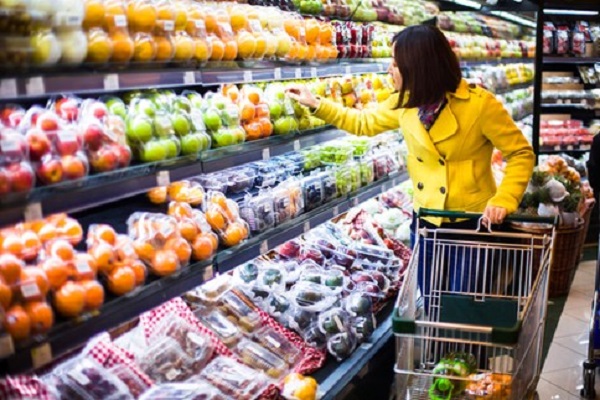#1 This is a national problem on a massive scale, and with supply chains as long as they currently are, not one that’s going away any time soon. National averages of produce shrinkage are at 6%, costing the US produce industry more than $2.1B annually. Also, new food safety regulations under the FSMA consider produce, and produce shelf life, to be a key area of concern.
#2 Fruit and vegetables are alive, and keeping their life processes going at a slow but steady rate is the key to their freshness. Spoilage of produce is due in part to its remaining alive after harvesting; fresh fruit and vegetables continue to function like living organisms and use stored energy and oxygen to remain alive. This is a process called “respiration” and uses up both the stored energy in the plant and the oxygen around it to continue life functions. This is how produce comes to ripen after harvesting. The rest of spoilage is mainly the reproduction of bacteria, mold, etc. that grow on the produce, and accelerate decomposition. All these processes are slowed at lower temperatures.
#3 There are four major factors in produce spoilage: improper handling, insufficient humidity, wrong temperatures, and exposure to ethylene. Ethylene is a hormone produced by plants to regulate their life cycles and growth. It serves to increase the rate of metabolism/respiration, and injury and ripening of produce can cause increased production of ethylene, which then causes the produce around the injured specimen to also ripen/respire/decompose at an advanced rate. It’s an accelerating cycle that must be managed if produce is going to arrive intact. And as with all other factors involving chemical processes, this happens less/more slowly at lower temperatures.
#4 Humidity and temperature have a complicated relationship with produce shelf life. Relative humidity has an inverse relation to temperature – higher temperatures have lower relative humidity absent other conditions, which dries out produce faster, speeding the wilting process. Of course, humidity at 100% brings about condensation on surfaces, encouraging the growth of mold, so high humidity at higher temperatures is to be avoided. Lower temperatures slow down the growth of mold. Temperature excursions can also bring about water on surfaces, which again is an ideal incubation environment for mold, so that’s a good reason to avoid them.
#5 Placement of data loggers matters—a lot. Studies show that data loggers or sensors near exterior walls or the roof, or relative to outside heat sources, register much more fluctuation in temperature than those fully inside the compartment. Additionally, one byproduct of respiration is heat; therefore, simply monitoring the ambient temperature is not sufficient to determine produce conditions without also taking into account the 2-3 degree increase from respiration.
#6 Your choice of data-collecting method—and the analysis you draw from it—could be life or death for your produce—and your company’s bottom line. Temperature control studies and the latest information on reefer temperatures and technologies are also deeply important for understanding exactly where in your cold-chain process you are having issues—and where the most cost-effective solutions could lie. A well-performed gap analysis is a beautiful thing: it demonstrates exactly where in your data tracking you are missing something. But there is no substitute for good data.
Find out the latest insights in the field and how to build a strong procedure with Dr. John M. Ryan, president of Ryan Systems, Inc., in his audio conference “The Impact of Temperature and Routing on Produce Shelf Life: Trucking’s Role in the Blame Game.” A veteran of Hawaii’s Department of Agriculture’s Quality Assurance Division, Dr. Ryan will review studies on temperature control and food spoilage during his presentation, which will be followed by a Q & A session so you can get results on your toughest questions in produce spoilage.


